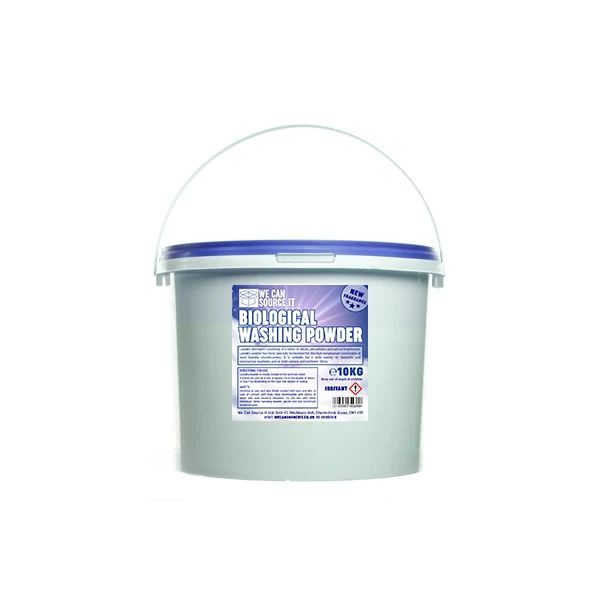Professional Bio Washing Powder 10kg Tub – Up To 250+ Washes
Our economical professional Bio washing powder is a perfect way of saving money. Great for hotels, guest houses, schools and even home use.
£15.50
In stock
Approximate Delivery Time
Get it by Tue 03 Mar
Any Confusion? Help
Description
This Professional Bio Washing Powder in a 10kg tub delivers up to 250+ washes, offering a powerful solution for eliminating stains and ensuring impeccably clean, fresh, and hygienic fabrics.
Key Features & Benefits:
- Commercial-grade formula provides a thorough, dependable clean, ideal for environments like hotels, schools, and hospitals.
- Offers 250+ washes per tub, delivering long-lasting value and reducing the frequency of refills.
- The generous 10kg tub helps save time and money, streamlining procurement and storage.
- Versatile for both domestic and commercial use, making it suitable for a wide range of laundry needs.
- Leaves fabrics fresh, clean, and hygienically sound, ensuring consistently high-quality results.
Specification
| Weight | 10 kg |
|---|---|
| Type: | Washing Powder |
| Capacity: | 10kg |
| Brand: | We Can Source It Ltd |
| Form: | Powder |
| EAN: | 5056371999714 |
| Colour | |
| Material | Liquid |
Delivery
At We Can Source It, we understand you're excited to receive your order! That's why we're committed to providing clear and efficient delivery options.
- See it sooner: The approximate delivery day displayed reflects our fastest option – orders placed with "Next Day" delivery before 4 pm.
- Value delivered: Enjoy complimentary tracked delivery on all orders over £75.
- Order by 4 pm for next day: To receive your order the next working day, please ensure you place your order and select "next day" delivery before 4 pm.
- Clear at checkout: When ordering items with varying delivery timelines, we'll provide detailed information at checkout so you know exactly what to expect.
We believe in keeping you informed every step of the way, ensuring a smooth and reliable delivery experience.
